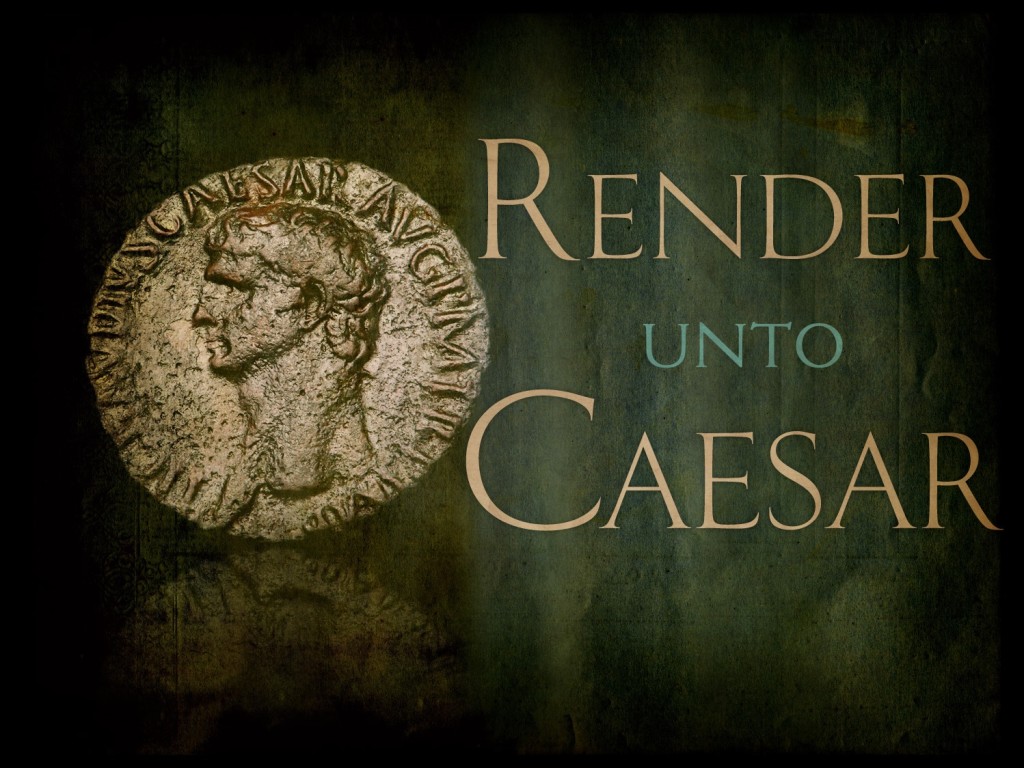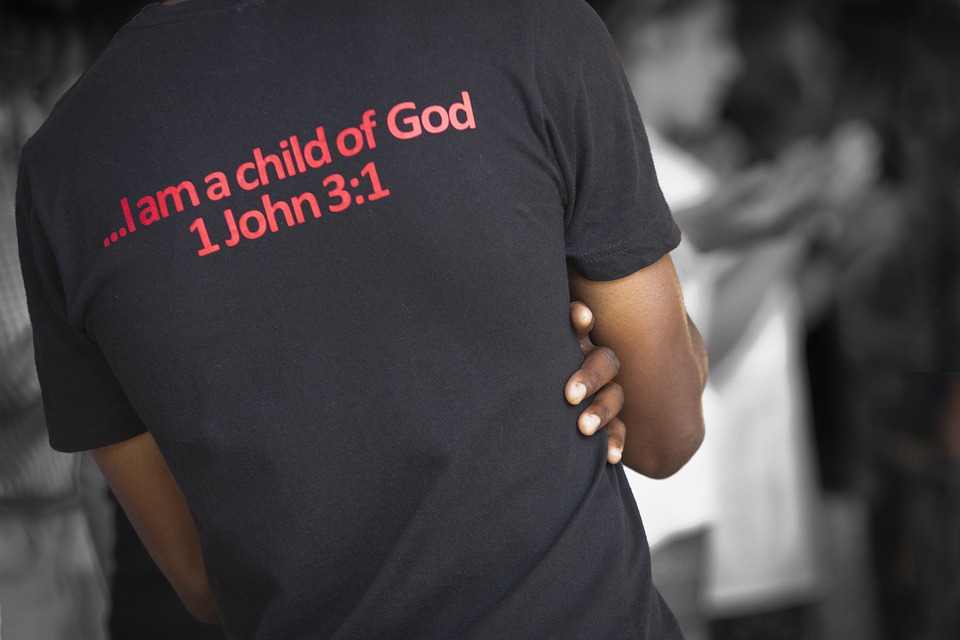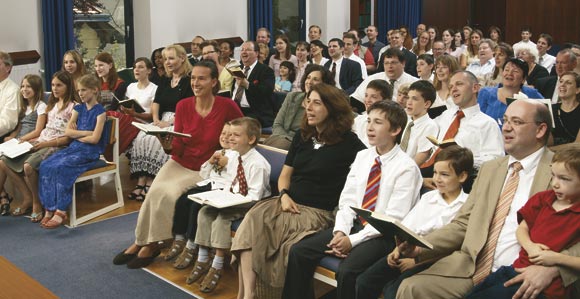Category: Philosophy
Why fewer people attend church

I read an interesting article called “The Missing Elements of Modern Worship” which my brother shared on Facebook. I was hoping for further insight into what can account for the epidemic downturn in church attendance. I used the author’s points to take inventory of our own services and I believe we have 100% of these every week. (Excepting only that there is no separated scripture reading but there is typically heavy use of scripture throughout the 40 minutes during which 2-3 speakers “preach expositionally”. So I don’t think anything here can account for the downturn.
I think it’s parenting. Parents should insist that children maximally participate in relevant church programs. Nothing, not friends, sports, school, and especially not part time work, should be permitted to interfere with church-sponsored activities. The Church must be the chief focal point of the child’s life, outside of the family. This is the only way the Lord, through the church, can speak as persuasively as the noisy distractions of modern life.
I am a technophile but I can still appreciate that technology can make it easier for children (and adults) to be distracted from important things. Technology itself is not the problem. Considering it so is a cop out for parental incompetence. So is “teaching my child the value of work” when that work takes place on Sunday or interferes with full participation in church programs.
There are Christians in Syria and Iraq who choose torture and death by ISIS rather than renounce their faith. But here many neglectful parents deny their children the necessities of a spiritual life by placing the false goods of modern culture on a higher pedestal than Christ. We allow the weeds of work, institutional secular education, and the lure of a secular peer group to choke off the plant which could become a tree of spiritual life for their children before it has a chance to take firm root. It is insidious and each generation of parents is guiltier than the one before. To renounce one’s faith or to deny your child the opportunity to develop his/her faith, what’s the difference? And so many do the latter under the most meager pressure.
If you allow your child to place a part time jobs, sports, or parties to take precedence over full participation in church youth activities or worse, over Sunday worship, then you, neglectful parent, are the reason why your grown children will mostly likely stop going to church. You, by your negligence, will have renounced their faith before they even knew they had it. We who can see this and say nothing about it, will be just as negligent.
“Train up a child in the way he should go: and when he is old, he will not depart from it.” (Proverbs 22:6.)
“And again, inasmuch as parents have children … that teach them not to understand the doctrine of repentance, faith in Christ the Son of the Living God, and of baptism and the gift of the Holy Ghost … the sin be upon the heads of the parents.” (D&C 68:25.)
Women and the priesthood

Before I became aware of the movement for ordaining women, I predicted that we would see the day when women were ordained. Since then, after reflecting on the subject, I have come to the view that ordaining women would be counterproductive. Men and women are equal but different with different needs. Men need the responsibility of priesthood authority to realize their divine potential whereas women do not. Remember that Brigham Young once taught that women could bestow a blessing of healing on their sick children. Does anyone seriously contend that Heavenly Father pays less heed to a mother’s prayer on behalf of her sick child than to a father’s priesthood blessing? The difference is that the outwardness, the formality, of the ordinance, and the other outward vestiges of priesthood power, being the responsibility of the man, increases the likelihood that he will be engaged in the work. Women do not seem to need this extra help. The man who merely “holds” the priesthood is damned. He must “bear” the priesthood, support the work of God, for his priesthood ordination to be a saving ordinance for him. Remember that a man must be ordained before he is qualified for temple blessings. There is no such requirement on a woman. The unimproved, natural man can not realize his divine potential. He is not his partner’s equal. It is by accepting and magnifying his priesthood responsibility that he becomes meet help for his companion.
If this view is an indictment of a man’s character per se then so be it. I have had 35 years to contrast the relatively diligent service of Relief Society sisters to the comparatively reluctant, but ultimately willing, and often equally stalwart service of priesthood bearers. But I fear that without the added responsibility that the scriptures routinely remind the priesthood holder that he has accepted, most men would be inclined to take a back seat and watch the sisters do all the work. Because of Eve (a savior in every sense), Adam was not left a lone man in the garden. By sustaining her husband’s priesthood responsibility, a woman helps ensure that he is not left a lone man in a lesser kingdom. This is not to suggest we ought to look down on men as weaker creatures. A righteous priesthood bearer is a powerful servant of God. But I do believe the priesthood responsibility ought to be seen more as remedial than prestigious. Whatever is good and noble and enabling and blessed about bearing the priesthood, women already have. Sisters, even single sisters, not yet sealed (to the priesthood), can perform priesthood ordinances in the temple without receiving any quasi-ordination.
I used to believe we would see a time when sisters would be ordained because there didn’t seem to me to be any harm in it. Now I see the harm. Priesthood is not something men have that women don’t. It is something that makes up for what women have that men lack. If women had the priesthood we would be no more help meets but unequally yoked. It seems to me this view is the only one consistent with the observations that men and women are equal in God’s sight and that only men are called to the priesthood. This is not like the issue of blacks and the priesthood which appears to have been mostly a function of the egregiously long time it took for the Church leadership to overcome unprincipled cultural bias.
We are not Sims.

Nowadays almost everyone who writes an explanatory book on physics for the masses has to address the simulation argument. In his excellent book, Hidden in Plain Sight: The simple link between relativity and quantum mechanics, Andrew Thomas says:
(T)hese theories consider the possibility tat our entire universe might be a simulated construct in a vast supercomputer run by an advanced civilization (as if we were simulated characters in the computer game The Sims.) The motivation behind such a simulation being just the same as why we enjoy playing games such as The Sims: for entertainment.
This statement, the one in bold, stretches the analogy too far. Have you played The Sims or any similar game? Are those game characters really like you? Hardly! I am not going to try to convince you otherwise, if you disagree, as in your case it may then be true. I address myself to those who realize that our capacity to think and feel make us of vastly greater worth than these superficial caricatures.
Have you ever made a model plane or a paper doll? If so, you more than likely did it for entertainment – your own or a child’s. Have you ever made a baby? Created a life? Raised him or her to think and feel and to enjoy the wonder of life? Was your motivation entertainment? Or were you motivated to share the joy of living with another who in some sense was, and in other ways would become, your equal, or even surpass you? To stretch the definition of “entertainment” to include such a motive is to divest the term of any utility. We create and nurture life out of love – a love of life and of life-sustaining and enhancing values.
So what would be the motive of a superiour intelligence that created “simulations” such as ourselves? Love. Any other motive necessarily ascribes an inferiour ethics to those we are required to acknowledge as having superiour technology. Give that superiour technology almost certainly entails superiour firepower – the ability to destroy (everything), it is reasonable to assume that ethical superiority is a necessary corollary. Writers who wring their hands about the possibility of discovering our technological superiours treating us as our ancestors (and ethical inferiors) treated the technologically inferiour civilizations they encountered are just being silly.
Even in these days of “Earth Days”, pleas to “Save the Whales”, and of carelessly ascribing make-believe “rights” to every beleaguered subset of humanity we can conceptualize, we are still ethically underdeveloped enough to remain at risk of blowing ourselves off the planet on about 15 minutes notice. It is unreasonable to suppose that an even more technologically powerful civilization has managed to wield such power without acquiring greater empathy, compassion and appreciation for their fellow creatures.
As bad as they are, Trump and Putin are a vast improvement over Hitler and Stalin. (I’m not sure the same is true of the Ayatollahs.) I would much more readily entrust our civilizations future to the ethics of a civilization advanced enough to create this world we experience as a “simulation” than with the cohort that leads our modern nation states.
It is not a logical necessity that advanced technology implies advanced ethics, but it is a reasonable assumption. A very reasonable one in my opinion. One I’d characterize as beyond reasonable doubt, achieving the level of scientific certainty (~95%) while allowing that it is no logical certainty (100%).
To dismiss the problem of evil arising from the notion of technology and ethically superiour creators all one need do is realize that evil is a necessary consequence of moral agency, which in tern is a prerequisite for moral development. Amoral evils (natural disasters and the like) offer challenges which, when met, further the advancement of our moral characters.
If we are simulations (better: “mathematical substructures”), as I believe we are, we are not castaway “Sims” but valued creations, offspring who can reasonably expect to be raised better than we raise our own.
“Render unto Caesar”

Give the state what belongs to the state, i.e. squat. The author of this article makes a great point. If Jesus wanted to advocate paying taxes he could have answered the question plainly. The Pharisees wanted and expected Jesus to counsel against paying tax so they could have him arrested. There was no need for Jesus to be “crafty” with his answer is the answer was “pay your taxes”. The craftiness was only required by His need to avoid compromising His principle of non-violence (which taxation necessarily violates) without giving his enemies the excuse they were looking for to arrest Him.
Belief

I liked this post discussing belief as choice and wanted to preserve it here with a few highlights and thoughts of my own.
I particularly like this quote from Dr. Teryl Givens as it is close to the same way I understand for why faith is so important. It is an excellent response to any questions regarding why God does not make it easier to believe, why he does not reveal himself to us more obviously.
“You are not free to believe or disbelieve the Law of Gravity. It’s there. The evidence is so abundant that you are compelled to accept it. So, as a result, there’s no virtue that attaches to your belief in that law. Similarly, if I were to offer you a million dollars to believe in the Easter Bunny, you wouldn’t be able to do it. So, in both of these cases, belief seems to operate outside of the moral sphere. We don’t have control that we can exercise to believe or to disbelieve.
But what I’m saying is that faith is what operates or what unfolds in a middle ground, between the compulsion to affirm and the compulsion to deny. And I believe that God has structured our lives here on this Earth in such a way that, when it comes to those issues of eternal import, we have to be free to affirm or to deny. And therefore, there has to be a balance of evidence, both for the veracity of the Gospel, and against it. It’s essential to God’s divine purposes, and to the flowering of freedom itself, I believe, that there have to be compelling reasons to reject the Book of Mormon, to reject Joseph as a prophet, to reject the existence of God Himself. But they have to exist alongside compelling reasons to affirm those things. Only in those circumstances can we call upon our will and choose to believe or not to believe. And I think in those moments, our choice reflects the most important things about us: our souls, what we love, what is it that we choose to affirm. And so that’s how I think faith operates.”
We are counseled that faith needs to supersede mere belief quickly or even such belief as we have will be lost. I think the process is: (1) we become informed of a proposition; (2) we find the proposition appealing (desire); (3) we hope the proposition is true; (4) we adopt an attitude toward the proposition that might loosely be called “belief” but which might be better characterized as the temporary suspension of disbelief (or at least lack of belief). In other words, a recognition that the proposition might be true and that the probability thereof, combined with its desirability, warrants a sincere search for more supportive evidence; (5) we act as if the proposition were true (exercise faith) which results in our obtaining further evidence supporting the proposition; (6) sufficient supporting evidence is amassed that our suspension of disbelief becomes real belief promoting real faith (belief-based behaviour).
(1) is the result of happenstance or divine planning. (2) and (3) come from who we are; who we have become through a lifetime of previous decisions. (4) is a choice because it is an attitude towards the proposition which we are free to adopt or not. (5) is obviously a choice, and a rational one in the full context. (6) is ultimately a gift from God (direct spirit to spirit communication which we are counselled to anticipate and to accept as such. That it happens is certainly some, I would say rather persuasive, evidence of the truth of the proposition.
Whether we are the type of being – whether we have developed (or at least are willing to develop) the quality of Christ-like character – in whom it is safe to entrust with the salvation of our own spiritual offspring, is the question which we must be free to answer by what we do when confronted with the proposition that the Gospel is true. Not only the outcome, but the process of reaching it and thereby further refining that character, is critical. Faith (freely chosen, belief-based behaviour) is the means by which we develop and display a character fit for exaltation.
From the scriptures we learn that we are the children of God. From the scripture we write with our life’s blood we learn whether we will become the parent of gods. What we write is up to us. But remember that He assures us that to live like Him is to experience an eternal fullness of joy.
Notes on light, truth, glory and intelligence

Some relevant scriptures:
“And if your eye be single to my glory, your whole bodies shall be filled with light, and there shall be no darkness in you; and that body which is filled with light comprehendeth all things.” (D&C 88:67)
“Then shall ye know that ye have seen me, that I am, and that I am the true light that is in you, and that you are in me; otherwise ye could not abound.” (D&C 88:49–50)
“…the light which shineth, which giveth you light, is through him who enlighteneth your eyes, which is the same light that quickeneth your understandings; Which light precedeth forth from the presence of God to fill the immensity of space— The light which is in all things, which giveth life to all things, which is the law by which all things are governed, even the power of God who sitteth upon his throne, who is in the bosom of eternity, who is in the midst of all things.” (D&C 88:11–13)
“(Jesus Christ is) He that ascended up on high, as also he descended below all things, in that he comprehended all things, that he might be in all and through all things, the light of truth; Which truth shineth. This is the light of Christ. As also he is in the sun, and the light of the sun, and the power thereof by which it was made. As also he is in the moon, and is the light of the moon, and the power thereof by which it was made; As also the light of the stars, and the power thereof by which they were made; And the earth also, and the power thereof, even the earth upon which you stand.” (D&C 88:6–10)
“The glory of God is intelligence, or, in other words, light and truth. Light and truth forsake that evil one.” (D&C 93:36–37)
“Intelligence, or the light of truth, was not created or made, neither indeed can be. All truth is independent in that sphere in which God has placed it, to act for itself, as all intelligence also; otherwise there is no existence. Behold, here is the agency of man, and here is the condemnation of man; because that which was from the beginning is plainly manifest unto them, and they receive not the light.” (D&C 93:30-31)
“For behold, this is my work and my glory — to bring to pass the immortality and eternal life of man.” Moses 1:39
“And truth is knowledge of things as they are, and as they were, and as they are to come;” (D&C 93:24)
What I get from all this is that:
- “truth” refers to the facts of existence – reality as created, defined, perceived and revealed by God. It is absolute as far as it matters – as far as it pertains to us.
- “Light” refers to the innate know-ability of truth. If there was such thing as truth without light it would be a fact of existence which was undiscoverable or unknowable to us. There is no such truth. Light is that which makes all truth knowable.
- “Intelligence” is the capacity, which we inherit from God, to use light to discover truth.
- God uses his superior (perfect) intelligence to accomplish his work which is to bring to pass our exaltation.
The word used to describe our essential being, that from which our spirits were organized, is “intelligence”. Our essential characteristic, therefore, that which distinguishes us as humans, as children of God, from all other things, is our capacity to detect, discover, recognize truth. Our ability to perceive reality and understand what we perceive. This capacity utilizes light, or the light of Christ, which seems to refer to that which permits truth to be known, comprehended. We all possess, or have access to, this light. It is inherent in our nature as intelligences.
God says that to see us, his children, exhalted to his quality of life, is his work and his glory – or, it is the work of his glory. That is, the work to which he puts his supreme intelligence.
A knowledge, even an imperfect one, of how committed our all-powerful creator is to our success is faith-promoting.
Technology can bring people back to church

I was recently reading some articles about why church attendance is generally in decline. One of the main factors cited was that churches are failing to provide for people’s need for community. Interesting. What is a “community” in this age of instant, free, global communication? Geographic proximity is fast becoming irrelevant. Yet churches are nearly invariably organized around a geographic sense of community. Think instead if it was organized around a community of interests, ties of friendship or family, etc.
My perspective is that of an LDS Christian. Picture a typical Sunday. Members from our local area get out of bed, get washed, dressed, travel and arrive to sit and listen to 3 of their fellows (usually a youth, a less experienced speaker, and a more experienced speaker) speak on assigned gospel topics. Each talk might or might not be relevant or interesting to those in attendance, but each speaker takes his or her turn addressing the entire congregation.
Now consider what it would be like to use technology to transcend the limitations of a geographic organization. I can picture excitedly rolling out of bed each Sunday morning to explore that day’s interactive, customizable itinerary. Thousands of members all over the world have indicated their willingness to accept speaking assignments. A few dozen, of varying experience and abilities, have been selected to present talks on assigned topics. I choose from among these, which I am most interested in. I can watch, listen, and/or read these talks. I can avail myself of the latest virtual reality technology if I wish to experience something close to a traditional setting. I can interact with others doing the same thing or choose to participate from more of an arm’s length. I can experience these “talks” in any order and at any time and in any manner I choose. Repeatedly, throughout the day, I have to option to participate in discussions with others on the same subject as the talks. I can see the choices made by my friends and families so I can factor their choices into my own decision about which talks and discussions to join and when.
In this way my church community is now much more relevant to me. It is based on freely chosen associations with friends and family and base on my interests rather than the increasingly irrelevant factor of geography. A global resource pool exposes me to speakers from around the world and to their varying perspectives. This makes me more a part of a worldwide family than an insular community.
Another factor in declining attendance was said to be the “quality of the preaching”. Extracting volunteer speakers from a global pool on varied topics almost assures both quality and relevancy. The quality of the virtual reality experience can provide as much or as little of the traditional feel of going to church as desired. And again, the global resource pool assures that there will be a community of others with whom to share whatever that level of interactivity might be. Physical limitations due to age, infirmity or distance are no longer relevant. People who like to sleep in can do so and still participate when they wish.
Most traditional pastoral care can be offered by members irrespective of distance. Again, with virtual reality increasingly able to simulate the personal touch proximity permits. Certainly there will be some needs where actual physical proximity is necessary but geographic community will not become anathema, but merely relegated to a subordinate role to more relevant bases for community.
As technology inexorably progresses, especially virtual reality, I expect to see all churches evolve along these lines offering greater opportunity for increased and improved participation. I would hope, and expect our church to be at the forefront of progress.
A line of thought on Theogeny
Nothing to see here folks, move along.
This is really just a “note to self” regarding something I just read and pieced together. I was reading John Leslie’s, “The End of the World”. He reminded me that given a large enough collection of black holes, a fully formed intelligent being might emerge as Hawking radiation. He raises this to illustrate the point that the anthropic principle as understood by it’s discoverer, Brandon Carter, and Leslie himself, contemplates situations where it is more likely to find oneself and not situations such as the one I mention which, while possible, are highly unlikely.
Nevertheless, it got me thinking that if an intelligent being could thus emerge, why not a virtually omniscient and omnipotent one? Could this be the mechanism by which Leslie’s “Divine Mind” is created by his “creatively effectual ethical requirement”? If so, the only “requirement” would be John Wheeler’s oscillating cosmos – an ever-cycling expansion from and collapse to an infinitely small and dense point of potentialities. Obviously such a point fulfills the role of Leslie’s black hole and the emergent universe the role of Hawking’s radiation. So then, from an infinite number of such cycles, there would be an infinite number of intelligent beings, covering the full range of intelligence right up to, and including, all the knowledge capable of having.
But, recalling the anthropic principle, shouldn’t we expect our cycle to have produced, either no intelligent children of the Big Bang or at best, one whose intelligence falls far short of virtual omniscience/omnipotence? Well, one should expect that only a being of at least close to omni-intelligence would survive long enough to form a thought, let alone survive proximity to a Big Bang singularity. It seems reasonable for us to consider such a being at least virtually omni-intelligent – close enough for our purposes.
But would such a being be omni-benevolent too? Again, anthropic reasoning suggests so. We should expect that such a being would value life, since without life, value is impossible. If such a being did not value life, presumably we would not need to concern ourselves with it as it would soon fall to the considerable life-threatening environment proximate to a big bang. If it did value life, it seems reasonable to attribute seemingly obvious virtues such as consistency to it. It seems to me that a virtually omnipotent/omniscient being which consistently values life is as close as we need to come to describing one of Leslie’s Divine Minds being radiated from one (or more) of an infinite number of big bangs. Attributing to it the inclination to reproduce seems a reasonable extrapolation and so Leslie’s Divine Mind becomes Mormonism’s Father of the Gods.
How do these fortuitous circumstances come to be? For that we must leave the anthropic principle far behind. We need to first accept that nothing in the world can answer the question of how to get the above something from nothing. At least nothing we typically think of as being in or a part of the world as any such thing posing as the ultimate explanation is subject to the question, “Well then how did THAT come to be?”
So the ultimate cause must be something that we don’t usually think of as existing in the sense that we think of most/all other things as existing. 1 + 1 = 2 in base 10 math. Wouldn’t that remain true even if there were no things to count or do the counting, or even to contemplate its truthfulness? The statement really is just a way of restating the law of identity (but what isn’t?). If you have one thing, and you have another thing, then you have both things (which means you have one thing and another thing). This is an abstract truth that doesn’t depend on the actual existence of anything we ordinarily think of as really existing. This abstract truth doesn’t prompt us to question it’s origin or seek a deeper explanation. The ultimate explanation must be something of that same nature.
Restating Leslie’s suggestion in the above context leads me to suggest that there is a creatively effectual ethical requirement that a singularity subject to quantum fluctuation exist. That might be all it took.
AI and the Consciousness Issue
It is supposed by some that we ought to reserve human rights for humans and that artificial intelligence (“AI”) ought to never be afforded such rights. More enlightened individuals would temper that by saying that the rights of AI ought to be respected at least if were believed to have acquired consciousness. But then the problem becomes how one can tell whether an AI is conscious when we cannot even know for sure whether another person is conscious. One feels safe in assuming so since the evidence is that other people are physiologically and behaviorally similar enough to oneself to warrant the assumption that since we are conscious, so too are these otherwise similar others.
I believe there will be good reason to warrant making this same assumption with respect to AI at some point. The argument against doing so would be something along the lines of thinking that a computer sufficiently powerful to constitute AI might still just be a bunch of machine parts producing outcomes while lacking sufficient unity or whatever it is that gives rise to consciousness to attribute consciousness to it. But I think this argument is completely defeated by an appreciation of the significance of the Turing test.
Imagine that an AI passes a vigorous Turing test. It’s behaviour (including communication) is indistinguishable from that of a human. Is not the fact that we are conscious and that we know we are conscious a factor influencing our behaviour? If AI behaviour had to precisely mimic human behaviour, would it not have to at least perfectly simulate consciousness and the appreciation of being conscious? If there were deficiencies in that simulated consciousness, would there not also necessarily be deficiencies in its behaviour preventing it from passing a sufficiently vigourous Turing test?
If AI behaviour is to be virtually indistinguishable from human behaviour then AI consciousness must logically be indistinguishable from human consciousness. I am maintaining that an intelligence that knows it is only simulating consciousness would be missing an important factor influencing its behaviour, i.e. an appreciation of truly being conscious.
If a simulated consciousness, including the appreciation of being conscious, was sufficiently powerful to allow the AI to pass a rigourous Turing test, then the simulated consciousness is virtually indistinguishable from human consciousness and out to be treated no differently.
Thus, a sufficiently rigourous Turing test ought to be all we need, without getting into the irrelevant issue of whether the AI also has consciousness. The flip side is that I don’t believe an AI will pass vigourous Turning test (be virtually indistinguishable from human intelligence) unless it has somehow acquired a simulated consciousness and an appreciation of it.
The weirdness of reality
Send light through a beam splitter one photon at a time. Send one of the resulting beams to one lab and the other to a second lab. In the first lab, use a device to change the phase of each photon that arrives. Then measure its phase. In the second lab, just measure each photons phase.
Conventional logic would tell you that the photons arriving at the second lab would not be effected by what was happening in the first lab, and so the phase of the photons measured there would be unchanged. But no, it’s phase was changed too.
Now remember that an individual photon acts like a wave, until you measure something about it, like exactly where it is, or its velocity, or its state (like measuring its phase). Then the wave “collapses” and it is no longer a wave, spread out over space, but a particle, occupying just one location in space.
So, until the phase is measured, the photon really is a wave. It really does “exist” “in” lab 1 and also lab 2 at the same time. That’s the only way changing its phase in lab 1, also changes it in lab 2. So superposition (the idea that a particle exists simultaneously at more than one location) is not just a way of explaining what happens – it really is what happens. Else how can the particle, which arrives in lab 2 and does not arrive in lab 1, nevertheless have its state altered in lab 1?
The photon is a wave which is extended through space to include both labs. It is altered in lab 1 and then, when measured, is found to be a particle (no longer a wave) in lab 1 and not present at all in lab 2.
The really, really weird thing about this is that (iirc) this means that when its phase is being changed by the device in lab 1, so long as the device does not alert us to whether it is, or is not detecting the presence of a photon right “now”, then the device also enters into a state of superposition – it exists at the very same instant as both a device which is altering the state of a photon and a device which is not altering the state of a photon. If we were to set the device to alert us when it is altering a photon, that would collapse the superposition and the photon would either be in one lab or the other but not both. Since this would happen before the photon’s state was altered, it would defeat the purpose of this new experiment as so that’s why the device had to be operating at all times the same whether or not it was then acting on a photon. (I didn’t get to the really, really weird part yet. That’s next.)
But the device is really no different than the scientist in the lab. Not as far as physics goes. So, just as the device is in a state of superposition to the scientist before it alerts him as to whether it is or is not acting on a photon, the scientist is in a state of superposition to people outside the labs, until he tells someone about whether he did or did not detect the photon in his lab. And this new experiment tells us that superposition is real. So the scientist really exists, at the same time, as a scientist who did detect a photon, and a scientist who did not detect a photon. (Ok, that’s the freaky part.)
This experiment was done and summarized here.